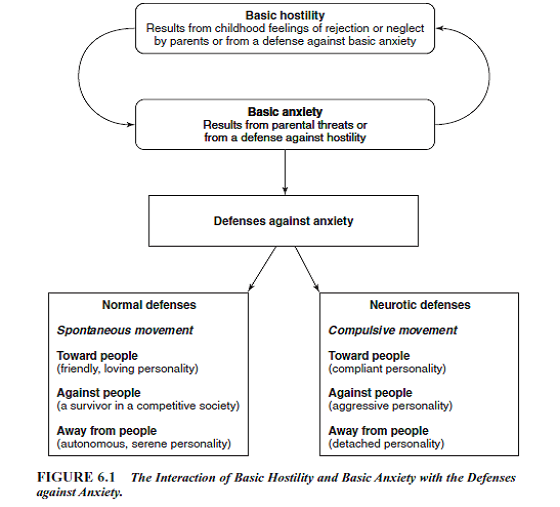Karen Horney is one of the few female names that appeared in the history of psychoanalysis and psychiatry during the first half of the 20th century and was undoubtedly an admirable woman. He was not afraid to confront the father of psychoanalysis, Sigmund Freud, proposing his own theory.
This psychoanalyst disagreed with Freud’s vision of the extent to which sex was decisive in the formation of the psychic structure. Karen Horney believed that, in addition to biology, culture had a decisive influence on personality formation. His theories had a significant impact, which is why he shone in his own light.
- The theory she created takes her name.
- Suffered the rejection of many psychoanalysts of her time.
- Yet she was founder of the Association for the Advancement of Psychoanalysis in the United States.
- An organization that was followed by important figures such as Erich Fromm.
- Harry Sullivan and Margaret Mead.
- Among others.
“Fortunately, analysis is not the only way to resolve internal conflicts. Is life itself still a very effective therapist? – Karen Horney-
Karen Horney was born in Hamburg, Germany, on September 16, 1885, the daughter of a very conservative marriage, made up of her father, navy captain, mother, housewife and five siblings, four of them children of her father’s first marriage.
Karen’s mother didn’t love her husband. This seems to have greatly affected Horney as a child, the mother’s contempt for marriage led her to educate her daughter to be above the woman’s classic destiny at the time, encouraged her to study medicine and supported her to do so, making great sacrifices.
However, Karen married Oskar Horney and then completed her studies, entered the neuropsychiatric clinic at the University of Berlin and met one of the brightest psychoanalysts of her time: Karl Abraham, did analysis with him and, at the same time, began graduating as a psychoanalyst.
Karen Horney had emotional problems. She could not have a full sex life and also suffered depressive episodes. During his psychoanalysis, Abraham claimed that this was due to an incestuous desire for his father. Karen rejected this interpretation and has since adopted a critical view of classical psychoanalysis.
Karen Horney’s marriage began to crumble when her husband went into financial bankruptcy and became ill with meningitis. Later, due to the start of World War II, Karen decided to settle in the United States. That’s where he’d do most of his work.
Karen Horney resolutely rejected Freud’s proposed concept of “penis envy,” argued that feelings of inferiority and sexual inhibitions present in many women were not due to anatomical determinations, on the contrary, they are the result of a restrictive education, which denies and regresses the feminine.
While Karen Horney maintained the psychoanalytic premise that childhood is the decisive stage in the formation of neurosis, she also gave her own interpretation: according to her, it is not sexual conflict that ends up causing anxiety and neurosis, on the contrary, parental affection and dissatisfaction determines mental health.
For Horney, if parents don’t meet their children’s emotional needs, they give way to feelings of hostility, frustration, and inhibition; if the expression of this hostility is limited, the person may have self-destructive fantasies and difficulties in social relations. this leads to anguish.
Karen Horney had an emotional relationship with Erich Fromm, and her humanist thinking had a big impact on her. Their union was intellectually very productive. However, professional jealousy and conflicts between couples also arose that led them to break the relationship and, at the same time, to dissolve the Association for the Progress of Psychoanalysis, of which both were members.
Karen Horney is considered the first to give an absolutely decisive place to affection during childhood. His whole theory holds that the feeling of helplessness during the early years completely marks the human mind.
Horney’s most notable works were “The Neurotic Personality of Our Time?”And “Nevrose and maturity. ” Just ten years after her death, she has acquired a truly remarkable place in the history of the sciences of the mind, today she is considered one of the founders of the humanist current.

